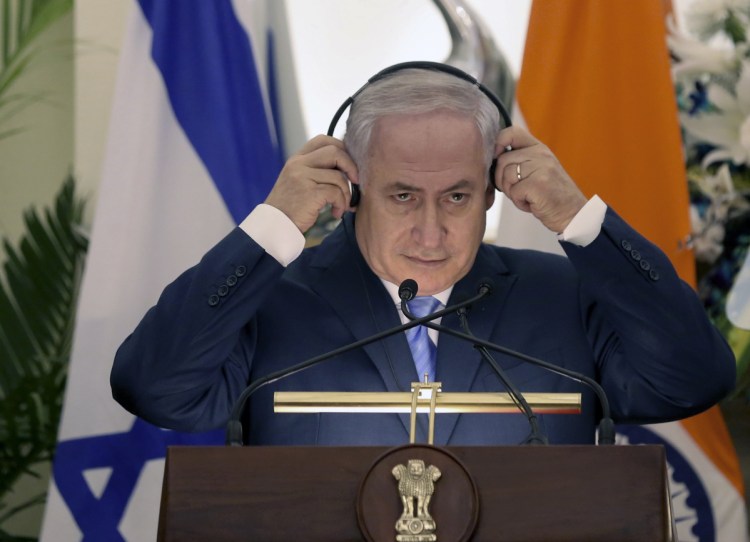WASHINGTON — Under the best of circumstances, a Mideast peace deal is the Holy Grail of diplomacy, a goal that has eluded American presidents for generations.
With Israeli Prime Minister Benjamin Netanyahu set to visit Washington this coming week, the mix of politics, personalities and historical grievances that has stood in the way of Israeli-Palestinian peace is even more combustible than normal.
President Trump’s point man for mediation, Jared Kushner, is in the middle of a political firestorm, his plan remains a mystery and the Palestinians aren’t even speaking to the White House. If that weren’t enough, Netanyahu and Trump are both distracted by mushrooming legal investigations at home.
It’s all contributing to an intensified pessimism in the U.S., Israel and the West Bank about prospects for a Trump-brokered initiative to succeed.
Kushner and a small team have spent the past year preparing a much-awaited blueprint for peace, but no details have emerged. Many in the region wonder whether the vaunted plan will ever come.
On the surface, Israel’s relationship with the White House has never been better, buoyed by the Jewish state’s thunderous support for Trump’s decision to relocate the U.S. Embassy in Jerusalem and recognize the disputed city as Israel’s capital. The announcements only reinforced Palestinians impressions of Trump as biased against them.
The Trump administration’s peace proposal is near completion, according to U.S. officials, but faces an uncertain future as Kushner, the Trump son-in-law leading the effort, recently lost his top-secret security clearance. Former negotiators say Kushner’s downgraded status probably will severely impair his ability to do the job.
Beneath the veneer of U.S.-Israeli unity, there is lingering disagreement and suspicion.
Israel is increasingly worried that Trump is backsliding on a pledge to “fix” or dismantle the 2015 Iran nuclear deal. Israel also is concerned that behind Trump’s tough public stance toward Tehran is an acquiescence to Iran’s growing presence in Syria and influence in Lebanon – two Israeli neighbors.
“The Israelis now are undoubtedly sounding the alarm,” said Jonathan Schanzer, who researches Iran’s regional influence at the hawkish Foundation for the Defense of Democracies. “The assets the Israelis see on the other side of the border to its north – they are not happy.”
Israel views Iran as an existential threat and Netanyahu has repeatedly implored Trump to “fix it or nix it” when it comes to the nuclear deal. That agreement, negotiated by the Obama administration and other world powers, rewarded Iran with billions of dollars in sanctions relief for curbing its nuclear program.
Trump and Netanyahu are scheduled to meet Monday, in the middle of the annual American Israel Public Affairs Committee policy conference, which brings thousands of pro-Israel officials, lawmakers, activists and academics to Washington.
Send questions/comments to the editors.



Success. Please wait for the page to reload. If the page does not reload within 5 seconds, please refresh the page.
Enter your email and password to access comments.
Hi, to comment on stories you must . This profile is in addition to your subscription and website login.
Already have a commenting profile? .
Invalid username/password.
Please check your email to confirm and complete your registration.
Only subscribers are eligible to post comments. Please subscribe or login first for digital access. Here’s why.
Use the form below to reset your password. When you've submitted your account email, we will send an email with a reset code.